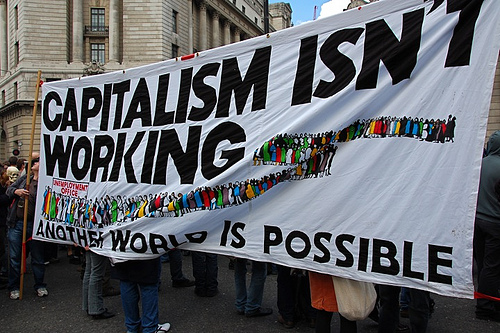Irwin Allen Ginsberg was born June 3rd, 1926, and died April 5th, 1997.
Today is his 88th birthday.
Ginsberg, along with Jack Kerouac and William Burroughs, is a preeminent figure in the 1950’s Beat Generation counterculture — i.e. the Beatniks — and if you’ve ever wondered what, precisely, these women and men stood for, it is really just the garden-variety, hippy-dippy, neo-Marxist’s dogma. Indeed, the following and more famous 1960’s hippy movement was a direct outgrowth of the Beats:
They opposed capitalism — or what they called “economic materialism” — sexual repression, military force, and all the other usual suspects.
In 1956, Ginsberg, already semi-famous, was catapulted into the international limelight, when his wildly popular poem “Howl” first appeared.
“Howl” is a long, sprawling, loose, baggy monster, only partly intelligible, in which Ginsberg bemoans, among other things, “the best minds of my generation destroyed by madness, starving hysterical naked …”
“Howl” is essentially a protracted denunciation of what Allen Ginsberg saw as the “destructive forces of capitalism” in the good old United States of America.
There is also the undeniable theme of non-conformity running throughout his most famous poem, and, for that matter, his entire oeuvre.
But the Ginsberg line I’ve always enjoyed most — and have quoted it here before — isn’t from “Howl” or any of his other poems. It’s from a 1986 interview he gave to the Newark Review. I trust you will find it as edifying as I do:
“We talk about our assholes, and we talk about our cocks, and we talk about who we fucked last night, or who we’re going to fuck tomorrow, or when we got drunk, or when we stuck a broom in our ass in the Hotel Ambassador in Prague — anybody tell one’s friends about that?”
(Listen to him read this excerpt)
Happy Birthday, Irwin Allen Ginsberg, R.I.P.


